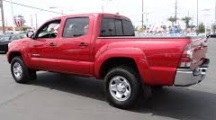Here are some sample questions and answers taken from my best-selling interview guide:
What do you do in your spare time?
This question is used for two reasons. Firstly, it is usually asked at the beginning of the interview as a gentle 'ice-breaker' to help you relax. Secondly, it helps the interviewer get a fuller idea of what type of person you are by discovering what your hobbies and leisure interests are.
Your answer should be honest, but think about any hobbies you may have which are relevant to the job you are applying for. For example, if you are applying for a sales position then mentioning that you play a competitive team sport would support your application.
Sample response: 'I like to spend time with my family and friends, but I am also a huge sports fan. I enjoy the excitement and competitive edge that comes with playing team sports. I think because I have such a goal orientated personality, it is why I enjoy working in sales so much.'
How do you handle criticism of your work?
Most supervisors and line managers have the occasional bad day when they'll find fault with your work, whether it's justified or not. The interviewer is trying to assess your view of your temperament. Do not respond by saying 'Tell them they are wrong'; that suggests someone who is not open to another opinion! Likewise, don't suggest you take it in your stride; no-one enjoys being criticized.
Sample response: 'Naturally, if I have put extensive time and effort into a project, it is not easy to be told that I've made mistakes or that my work is not up to scratch. I would obviously be concerned and ask my manager to explain why and where my work is not up to standard. I would reflect on those comments and incorporate them into future projects. If I felt I did not agree in areas I would politely explain why.'
Where do you see yourself in five years' time?
Depending on where you are in your job search and how many interviews you’ve endured unsuccessfully before this one, you may not particularly care where you are going to be in five years’ time (besides that may be the year you’ve penciled in a world cruise!). That’s not what the employer wants to hear. The response they are looking for is a forward thinking career plan that demonstrates logical, clear and achievable thinking. Similarly, do not say ‘I’m after your job’.
Sample response: ‘With my skills, achievements and experience I would anticipate growing within this company. In five years, with the appropriate opportunities and training, I would hope to be employed in a management or team leader role which would both challenge me and enable me to coach, encourage and mentor other members of staff’.
Which company did you least enjoy working for?
One of the golden rules in an interview is not to criticize any of your previous employers. While you may have explained that you made errors in taking roles in the past, you’ve personally accepted responsibility for that error. All jobs are a part of your career growth and present an opportunity to learn. If you criticize your former employers, it will, as we have said previously, reflect back on to you.
Sample response: ‘Every single one of my positions has been a learning experience, although I did accept one job for the wrong reasons. Each role has given me the opportunity to learn valuable lessons about myself and my career and I’m grateful for the continuing chances to evolve in my career’.
If you found these samples helpful, then make sure you scroll down now and get your hands on the full set of 100 questions and answers. They can be yours in less than 1 minute!.

























